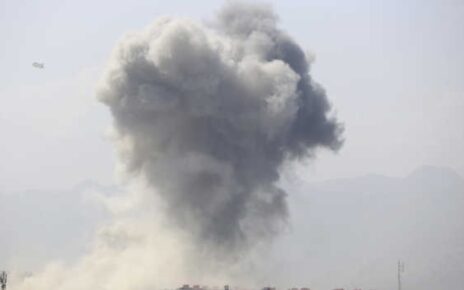A surprise attack by Iran-backed Hamas, a Palestinian militant group, killing over 1,000 in Israel this past weekend, has re-ignited geopolitical tensions and sent oil prices surging, weighing on stock markets globally and boosting gold’s safe haven appeal. With this, oil prices have reversed recent fall, stoking inflationary concerns. If the Middle East tensions extend, it would give weight to ‘higher-for-longer’ Fed narrative, which may hurt rupee and lead to foreign equity outflows. A knee-jerk reaction is awaited across asset classes.
“
Events in the Middle East over the weekend (i.e. attack on Israel) presents a risk for stocks as such events could possibly lead to a surge in oil prices thus putting at risk the recent US disinflation narrative, in our view,” said Nomura.
V K Vijayakumar, Chief Investment Strategist at Geojit Financial Services said the Israel-Hamas conflict has introduced a huge uncertainty for the markets.
“Nobody knows how this war is going to evolve. From the market perspective it is important to understand that even though the death and destruction are tragic, presently it is unlikely to cause major disruption in oil supplies, thereby, impacting major oil importers like India,” Vijayakumar said.
“But the situation will change if Iran, a major Hamas supporter, is drawn into the war. That can disrupt oil supplies causing a spike in crude, which can trigger a risk-off in the market. This is a time to be cautious. Investors may refrain from taking big risks. Wait for the developments to unfold. Long-term investors can slowly accumulate high quality stocks on declines,” he said.
Brent crude oil futures, climbed 4.18, or nearly 5 per cent, to $88.76 a barrel earlier today. On the other hand, US WTI crude rose 5.1 per cent to $87.02 a barrel level. Gold may gain further as the war intensifies with rising death toll, said Praveen Singh – Associate VP, Fundamental Currencies and Commodities at Sharekhan. Israel and Palestine are not oil producers, but Iran is. Deven Choksey, MD at KRChoksey Shares noted that while US sanction continues on Iranian oil, Iran’s supply has increased in recent years.He noted that Arab nations such as Saudi Arabia and Egypt does not support the Hamas movement. He noted that OPEC nations would be mindful of not increasing the oil price beyond 10-12 per cent, as they have understanding in practice with USA to ensure that oil prices are not increased beyond certain levels.
“Thus , under the knee jerk reaction to this attack prices may go up by 10-12 per cent in near term. US is backing Israel and Biden will ensure that US opens up their oil reserves to cool down the prices in case they go up beyond 10-12 per cent to control inflation in US and also Because US would not like Russia to benefit from higher crude oil prices,” Choksey noted.Choksey said oil prices may not stay at elevated levels, beyond short-term moves. “Markets will react on Monday, however it remains to be seen how far it takes for Israel to attack Hamas, given the fact that Israel intelligence failed in detecting such a major attack on Saturday,” he said.Jayden Ong, Senior Market Analyst, APAC at Vantage said there is a prevailing concern within the financial markets regarding the potential protraction of the ongoing conflict, leading to sustained upward pressure on crude oil prices. In conjunction with the OPEC+ production reduction agreement, this scenario is anticipated to contribute to a persistently elevated inflation rate, he said.”Consequently, central banks in diverse nations are expected to uphold elevated benchmark interest rates, a measure that may exacerbate the economic downturn,” Ong added.
Prashanth Tapse, Senior VP (Research), Mehta Equities said a knee-jerk spike in crude oil prices was a given due to the ongoing conflict.”Oil futures have spiked more than 5 per cent to above $87 per barrel following the outbreak of a conflict between Israel & Hamas, as a surging crude oil could impact domestic inflation and would see interest rates at an elevated level for a prolonged period. Keeping the mood bearish, the US bond yields have continued their upward bias as the 10-year treasury flared at 4.799 per cent, while the yield on the 2-year Treasury has spiked to 5.085 per cent, scaling a 16-year high.” he noted.




